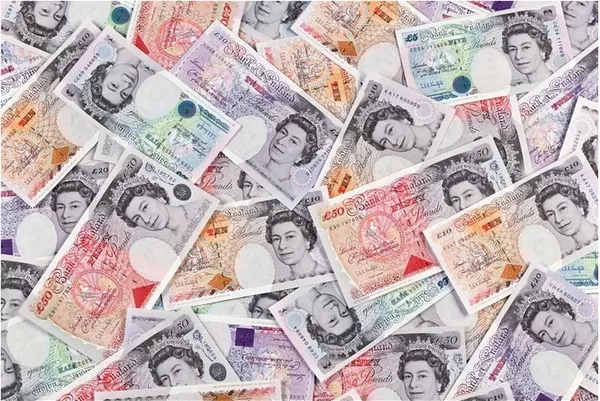The English Pound, also known as the British Pound or simply the Pound Sterling, is the official currency of the United Kingdom. It holds significant importance in global financial markets and has a rich history dating back centuries. In this article, we will explore the factors that influence the value of the English Pound and analyze its worth in today’s economic landscape.
Historical Background
The origins of the English Pound can be traced back to the Anglo-Saxon period when silver pennies were used as a medium of exchange. Over time, the currency evolved, and in 1489, King Henry VII introduced the first standardized English coinage known as the Pound Sterling. Since then, the Pound has undergone various changes, including decimalization in 1971, when it was divided into 100 pence.
Factors Influencing the Value of the English Pound
The value of the English Pound is influenced by several factors, both domestic and international. Understanding these factors is crucial in determining its worth:
1. Macroeconomic Factors: The overall health of the UK economy plays a vital role in determining the value of the Pound. Factors such as GDP growth, inflation rates, unemployment levels, and interest rates impact the currency’s value. A strong economy with stable growth and low inflation tends to strengthen the Pound, while economic instability can lead to a decline in its value.
2. Monetary Policy: The decisions made by the Bank of England (BoE), the UK’s central bank, regarding interest rates, money supply, and quantitative easing have a significant impact on the Pound’s value. Higher interest rates tend to attract foreign investors, increasing demand for the currency and driving up its value.
3. Political Stability: Political stability is crucial for maintaining investor confidence and attracting foreign direct investment. Political events such as general elections, referendums, or policy changes can create uncertainty, leading to fluctuations in the Pound’s value. For example, the Brexit referendum in 2016 had a profound impact on the currency, causing it to decrease significantly against major currencies.
4. Trade and Current Account Balance: The balance of trade and current account deficits or surpluses also influence the Pound’s value. A trade deficit, where the value of imports exceeds exports, can put downward pressure on the currency. Conversely, a trade surplus can strengthen the Pound.
5. Market Sentiment and Speculation: Market sentiment and investor speculation play a role in short-term fluctuations of the Pound. Factors such as geopolitical events, market rumors, or changes in global risk appetite can lead to sharp movements in currency markets.
Exchange Rate Mechanism
The exchange rate determines the value of the English Pound relative to other currencies. In the modern era, the Pound’s exchange rate is determined by supply and demand dynamics in the foreign exchange market. Currency traders, financial institutions, central banks, and governments engage in currency transactions that collectively influence the exchange rate.
The Pound is one of the most actively traded currencies globally, with significant trading volumes occurring in London, the world’s largest foreign exchange market. Major currency pairs involving the Pound include GBP/USD (Pound-Dollar), GBP/EUR (Pound-Euro), and GBP/JPY (Pound-Yen).
Historical Exchange Rate Movements
The English Pound has historically experienced both periods of strength and weakness. Significant events, economic developments, and policy decisions have influenced its value over time. For instance:
1. Post-War Period: Following World War II, the Pound was a dominant reserve currency, backed by Britain’s strong economy. However, in the 1950s and 1960s, the Pound faced challenges due to economic difficulties, leading to devaluation against major currencies.
2. Thatcher Era: Under Prime Minister Margaret Thatcher’s leadership in the 1980s, the Pound experienced a period of stability and appreciation. The Thatcher government’s economic reforms and policies aimed at curbing inflation helped strengthen the currency.
3. European Union and Brexit: The Pound’s relationship with the European Union (EU) has been influential in recent history. The signing of the Maastricht Treaty in 1992, which led to the creation of the EU and the introduction of the Euro, brought about increased integration but also posed challenges for the Pound. The Brexit referendum in 2016 caused significant volatility in the exchange rate due to uncertainty surrounding the UK’s future relationship with the EU.
Current Worth of the English Pound
As of [current date], the value of the English Pound fluctuates relative to other currencies. It is important to note that currency values are subject to change due to various factors discussed earlier. At present, the Pound’s value against major currencies such as the US Dollar and Euro can be found by referring to reputable financial news sources or using online currency converters.
Conclusion
The English Pound holds substantial importance in global financial markets, reflecting the United Kingdom’s economic strength and political stability. Its value is influenced by macroeconomic factors, monetary policy decisions.


